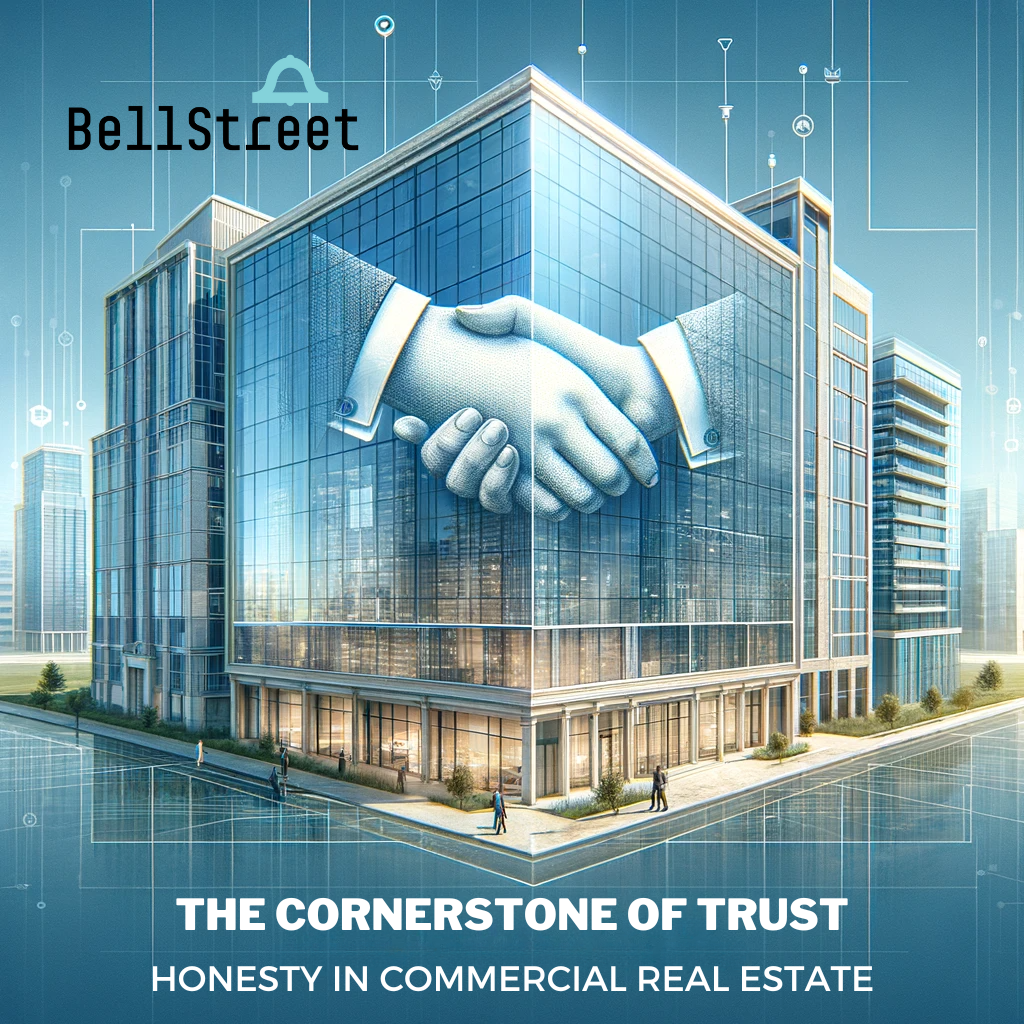The Cornerstone of Trust: Honesty in Commercial Real Estate
As the holiday season approaches, reminding us of the spirit of giving and goodwill, it's worth noting that honesty isn't just for when Santa is coming to town in commercial real estate. In this sector, honesty transcends its role as a mere seasonal virtue to become the bedrock of trust and the key to enduring success. Known for its complex transactions and high-stakes negotiations, this industry demands more than shrewd business acumen; it requires a year-round commitment to integrity. For commercial real estate professionals, embracing honesty isn't just about building a good holiday reputation—it's about shaping a legacy. Honesty defines the quality and longevity of every relationship and transaction we undertake. In this blog, we delve into the vital role of openness in commercial real estate, exploring how it influences our daily interactions, impacts business outcomes, and ultimately becomes the distinguishing factor in successful real estate practices, regardless of the season.
Honesty Defined in Real Estate
Being honest is a multifaceted principle that extends far beyond the basic expectation of truthfulness. It encompasses providing clients with transparent, accurate, and comprehensive information, ensuring they are fully informed at every transaction stage. In this context, honesty means more than just avoiding falsehoods; it involves a proactive approach to sharing knowledge, insights, and even uncertainties related to property deals.
This commitment to integrity includes:
Transparency in Communication: Clearly explain the intricacies of each deal, including potential risks and rewards, so that clients can make well-informed decisions.
Accuracy of Information: Diligently verifying the details of properties, market trends, and legal requirements to provide reliable and up-to-date information.
Full Disclosure: Unveiling all relevant facts, even those that might dissuade a client from proceeding with a transaction, prioritizing their long-term satisfaction over immediate gains.
Client-Centric Guidance: Navigating clients through the complexities of commercial real estate deals with their best interests at heart, offering counsel that reflects both market realities and ethical considerations.
By defining honesty in these comprehensive terms, commercial real estate professionals elevate their role from mere transaction facilitators to trusted advisors, integral to their clients' success and well-being in this dynamic industry.
Why Honesty Matters
Building Lasting Relationships: The cornerstone of any enduring relationship in commercial real estate is trust, which is nurtured and solidified through consistent honesty. This trust is not just about making a transaction successful; it's about creating a foundation for ongoing collaboration. Clients who have confidence in their advisors' integrity are more likely to return for future transactions and become a source of referrals. This long-term relational approach, fostered by honesty, is invaluable in building a sustainable client base and a network of loyal contacts.
Risk Mitigation: Honest dealings are a proactive tool for identifying and addressing potential transaction challenges and risks. By being forthright about the realities of each deal, including any potential drawbacks, advisors can help clients make better-informed decisions, ultimately reducing the likelihood of disputes or financial losses. This approach also involves being candid about market uncertainties, thus preparing clients for various possible outcomes.
Reputation and Credibility: Maintaining honesty is crucial in a sector where reputation can be a make-or-break factor. A reputation for integrity attracts more clients and opens up new opportunities as word of a trustworthy advisor spreads in the business community. This credibility, built over time, becomes a key differentiator in a competitive market.
Legal and Ethical Standards: Honesty is morally right and legally prudent. It ensures compliance with the various laws and regulations governing commercial real estate transactions, safeguarding the advisor and the client from legal complications. This adherence to ethical standards is critical in maintaining the professional integrity of the real estate sector.
Implementing Honesty in Practice
Transparent Communication: This involves conveying information clearly and concisely and ensuring that communications are comprehensive and devoid of misleading or exaggerated claims. Setting realistic expectations helps in establishing a truthful foundation for every interaction.
Ethical Decision Making: Choosing to act in the client's best interest, even at the cost of immediate personal or financial gain, exemplifies ethical practice. This might mean advising against a transaction if it doesn't serve the client's best interest.
Continual Education: Staying abreast of the latest market trends, legal changes, and industry best practices is essential for providing accurate and honest advice. An informed advisor is better equipped to guide clients effectively.
Addressing Mistakes: In scenarios where mistakes occur, it is crucial to acknowledge them openly and take prompt, corrective action. This solves immediate issues and reinforces the trust clients place in their advisors.
The ethos of honesty in commercial real estate transcends the realm of moral obligation and becomes a strategic imperative. This principle is the linchpin for building enduring trust with clients and within the broader industry network. By consistently practicing honesty, professionals mitigate risks and navigate the complexities of this field with greater ease and confidence.
Moreover, a reputation grounded in integrity becomes one of the most valuable assets in a real estate professional's career. It's a beacon that attracts clients, nurtures professional relationships, and opens doors to opportunities that might otherwise remain closed. Embracing honesty in every facet of our work ensures that we not only achieve success in the short term but also lay the foundations for a legacy characterized by ethical excellence and professional respect.
Thus, as we forge our paths in the dynamic world of commercial real estate, let us remember that our commitment to honesty is about doing what is right and shaping a resilient, respected, and prosperous career in rewarding relationships. It's about creating a professional journey where integrity leads the way, ensuring that our success is as sustainable as it is significant.

